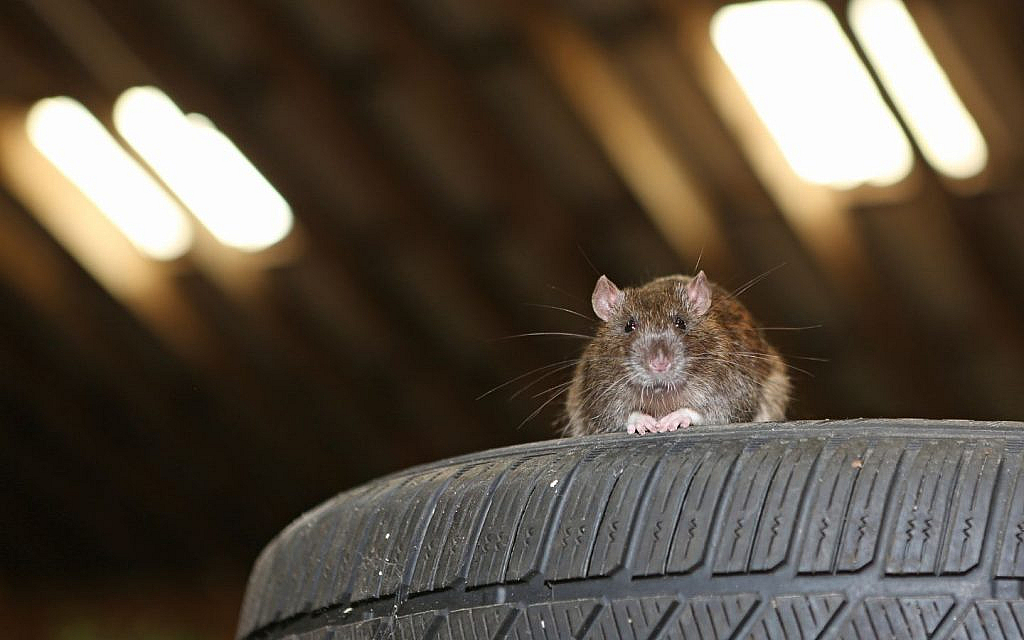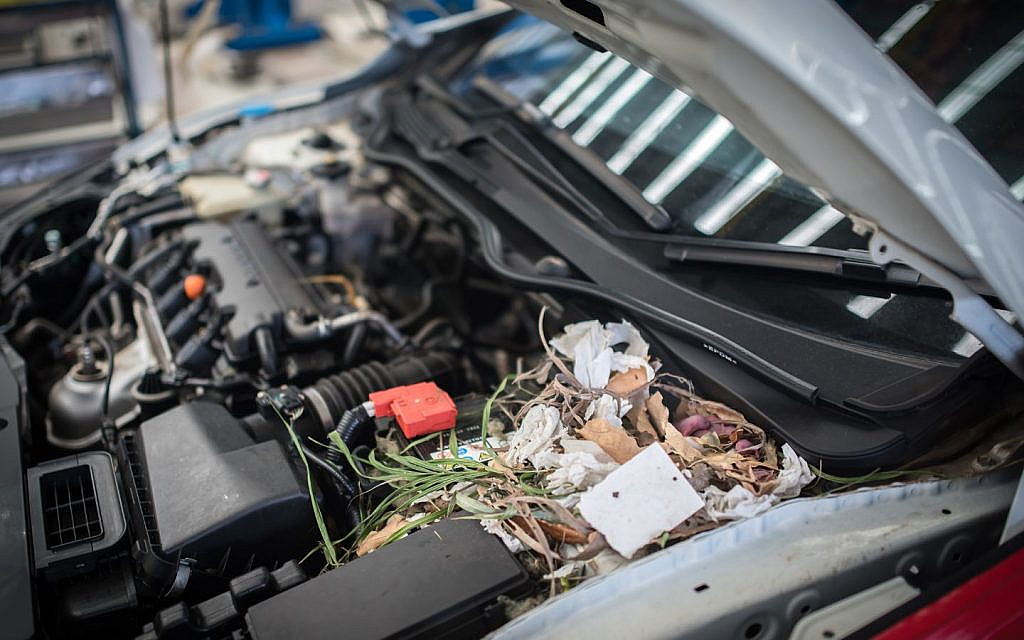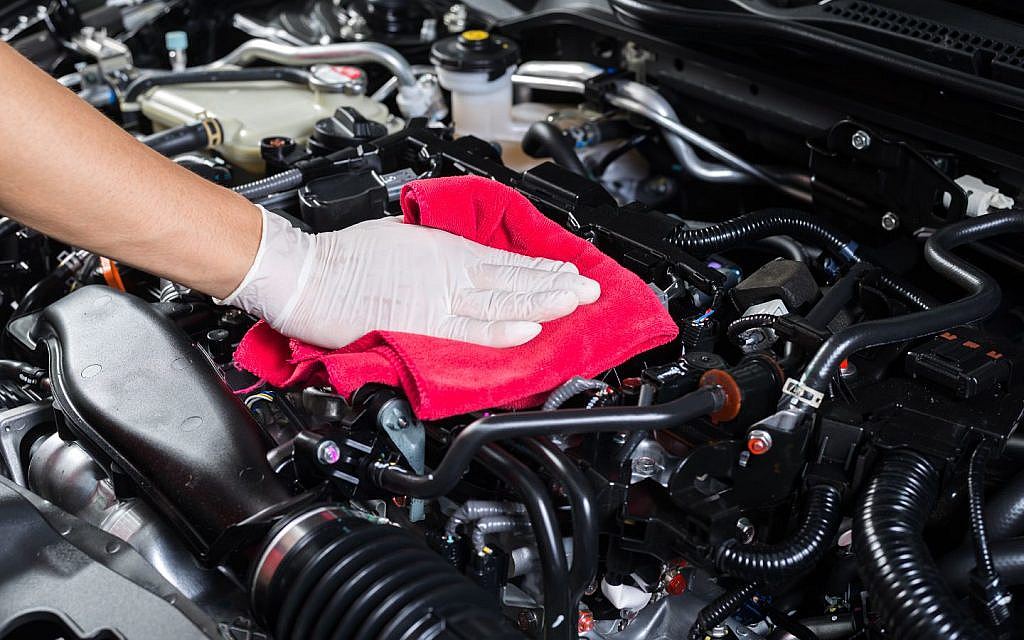How to Prevent Rodent Damage to Your Car
Rodents are masters at squeezing into hidden spaces and turning them into their shelter. While this behaviour is a nuisance in homes, it can be even more damaging when it happens in cars. What may seem like a minor nuisance can quickly escalate into a serious and costly problem. Once inside, rodents often chew through wiring, hoses and insulation, which can cause electrical failures, fluid leaks and interior damage. To prevent these problems, it is important to take proactive steps to avoid rodent damage to your car and keep it safe throughout the year.
Why Rodents Are Attracted to Cars

Rodents instinctively search for safe, warm environments and vehicles parked near wooded or grassy areas often provide ideal shelter. Modern cars also use soy-based wire coatings, which rodents are drawn to chew on, increasing the risk of damage and even causing a short circuit in the car’s electrical systems. In addition, food crumbs, trash or pet food left inside the car can attract them even more.
Common Signs of Rodent Infestation
Watch for these indicators that rodents may have taken up residence in your vehicle:
- Chewed or frayed wires under the hood
- Rodent droppings in the engine bay or interior
- Nesting materials such as leaves, twigs or shredded paper
- Strong or unusual odours
Tips to Keep Rodents Away From the Car Engine
Rodent-proofing your vehicle starts with making it less attractive to pests and more difficult for them to enter. Along with regular cleaning and deterrents, getting your car professionally checked is just as important. A professional service, such as dubizzle’s car inspection service, can give you peace of mind by spotting early signs of rodent activity or wiring issues before they turn into expensive repairs.
Keep the Interior Clean
Remove all food debris and trash from your car’s interior. Vacuum regularly, clean out compartments and cup holders and avoid leaving food wrappers or pet food inside the vehicle. A clean environment is far less attractive to rodents and using essential car interior cleaning products can help you maintain a rodent-free and fresh space.
Park Strategically
Whenever possible, park your vehicle in a closed garage with windows and doors properly sealed. Avoid parking near trash bins, dense vegetation or wooded areas, as these locations are hotspots for rodent activity. If a garage is not available, park in well-lit, open spaces or use a fitted car cover to reduce accessibility.
Seal Potential Entry Points

Inspect the engine bay, undercarriage, wheel wells and trunk for gaps or openings. Use steel wool, metal mesh or other rodent-proof materials to block these entryways.
Apply Rodent Repellents
Effective rodent proofing for your car engine involves creating an environment that pests find unpleasant and unsafe.
- Natural repellents: Sprays or oils containing peppermint can deter rodents due to their strong scent.
- Commercial products: Sprays or ultrasonic devices designed to deter rodents can be placed around or inside the vehicle.
- Mothballs: When stored safely in breathable containers, mothballs can discourage rodents, though they must be handled with caution as they are toxic.
Make the Environment Less Inviting
If the car will be unused for long periods in a garage, leave the hood open (provided it is safe and the area is well-lit). Bright lights inside the engine compartment or around the tyres can also help deter nocturnal rodents.
Protect the Wiring
Some mechanics offer protective tapes infused with capsaicin, the active compound in chilli peppers, which can be applied using protective tapes around car wiring. The bitter taste discourages rodents from chewing.
Use Traps Around the Vehicle
Rat traps can be placed near tyres, along garage walls or other entry points. Always follow local safety guidelines and place traps carefully to prevent accidental harm to people or pets.
Conduct Regular Inspections

Knowing the ways to keep rats out of car engine can save you from costly repairs and keep your vehicle safe year-round.Routinely check for droppings, nests or chew marks to detect infestations early. If rodents are suspected, replace affected parts promptly, including the cabin air filter, to prevent lingering contamination. Knowing the ways to keep rats out of car engine can save you from costly repairs and keep your vehicle safe year-round.
FAQs
Why do rodents chew on car wires?
Rodents chew on car wires because modern wiring often has soy-based coatings that attract them.
What are the signs of rodent activity in a car?
Signs of rodent activity in a car include chewed wires, droppings, nests, foul odours and shredded materials inside the vehicle.
Where do rodents usually hide in a car?
Rodents typically hide in the engine bay, air filters, trunk, under seats and around the glove compartment.
Rodent damage is a hidden threat that can lead to costly repairs if ignored. By practising effective rodent protection for cars, such as keeping the vehicle clean, sealing entry points, using repellents and inspecting regularly, you can safeguard your car from unnecessary damage. With the dubizzle car inspection service, car owners can rest assured that their vehicle is thoroughly examined for risks, including rodent-related damage.
Taking these steps not only protects your current vehicle but also helps maintain its long-term value. Even with precautions, accidents can happen. Reviewing your car insurance coverage for accidents involving animals ensures you’re financially protected if rodents or other wildlife cause damage. Moreover, if you are considering a vehicle upgrade, here are some used cars for sale in the UAE.
Keep reading dubizzle’s auto blog to learn more about maintenance tips, car care advice and industry updates.
Comments
Post a Comment